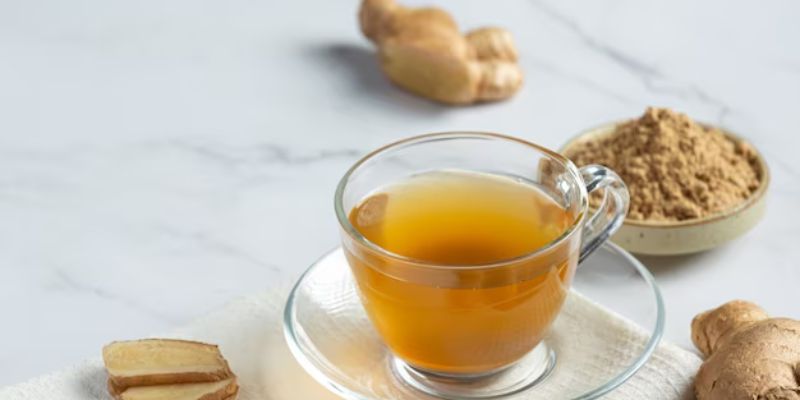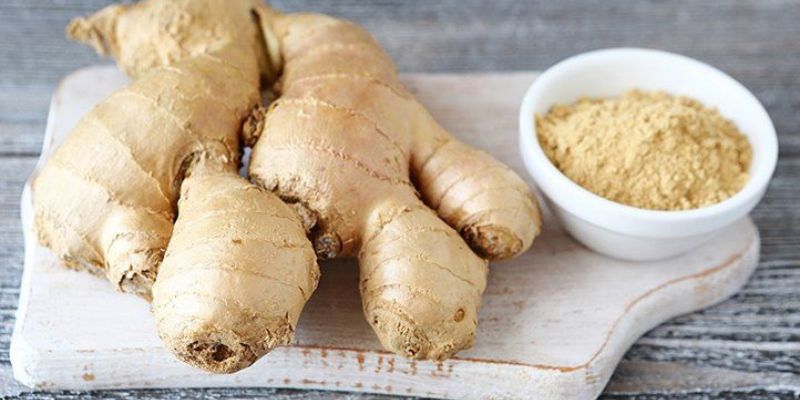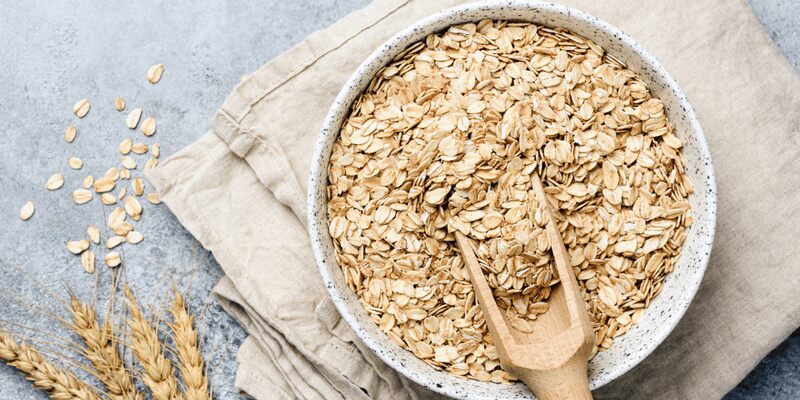Ginger is a popular spice used for centuries in traditional medicine. Not only does it add flavor to dishes, but ginger also offers numerous health benefits. In this article, we will explore ginger's nutrition facts and health benefits.
What is Ginger?
Ginger is a flowering plant that belongs to the Zingiberaceae family. It is native to Southeast Asia and has been used for centuries in culinary and medicinal practices. The root of the ginger plant is where its distinct flavor and aroma come from, and it can be consumed in various forms.
Forms of Ginger
Fresh ginger is commonly used in cooking and can be found in the produce section of most grocery stores. It has a spicy, pungent taste and can be grated, sliced, or minced to add flavor to dishes. Dried ginger is made by drying the root and grinding it into a powder. This form of ginger is often used in baking, spice blends, and teas.
Ginger powder is another popular option and is made by grinding dried ginger root into a fine powder. It is commonly used in curries, soups, and marinades for its warm and slightly sweet flavor. Ginger oil is extracted from the root through a steam distillation process. It is highly concentrated and has a strong, spicy aroma. Ginger oil is often used in aromatherapy, massage oils, and skincare products.
Ginger Nutrition Facts
Ginger is a versatile and flavorful spice widely used in cooking and traditional medicine. In addition to its taste and medicinal properties, ginger offers various nutritional benefits. While ginger is typically consumed in small amounts, it still contains several essential nutrients.

Calories
In terms of calories, ginger is relatively low in energy. One teaspoon of ground ginger contains approximately six calories, making it a low-calorie addition to meals and beverages.
Carbohydrates
When it comes to carbohydrates, ginger contains around 1 gram per teaspoon. This small amount of carbohydrates makes ginger suitable for individuals following low-carb or ketogenic diets.
Protein
Protein content in ginger is minimal, with less than 1 gram per teaspoon. However, ginger is not typically consumed for its protein content but for its taste and health benefits.
Fat
Ginger is very low in fat, with less than 0.5 grams per teaspoon. It makes it a good option for individuals watching their fat intake or following a low-fat diet.
Vitamins
Ginger is a good source of vitamin C and vitamin B6. Vitamin C is an antioxidant that helps boost the immune system and promote healthy skin. Vitamin B6 is essential for brain development and function and the production of red blood cells.
Minerals
Ginger contains small amounts of potassium, magnesium, and manganese. Potassium is crucial for maintaining proper heart and muscle function, while magnesium plays a role in bone health and enzyme function. Manganese is an essential mineral involved in metabolism and the formation of connective tissues.
Gingerol
One unique nutrient found in ginger is gingerol. Gingerol is a bioactive compound with powerful anti-inflammatory and antioxidant properties. It is responsible for the distinctive flavor and aroma of ginger, as well as many of its health benefits.
What are the 10 health benefits of ginger?
Anti-inflammatory properties
Ginger contains compounds called gingerols and shogaols, which have powerful anti-inflammatory effects. It makes it beneficial for reducing inflammation in conditions like arthritis, muscle pain, and menstrual cramps.
Helps with digestion
Ginger can help improve digestion by stimulating saliva production and increasing the activity of digestive enzymes. It can also relieve nausea, bloating, and other gastrointestinal discomforts.

Boosts immune system
With its high antioxidants, ginger can boost your immune system's ability to fight infections and diseases. Regular consumption may reduce your risk of catching common illnesses like colds or flu.
Reduces blood sugar levels
Studies have shown that consuming ginger regularly may lower blood sugar levels in people with type 2 diabetes. It could be due to its ability to increase insulin sensitivity.
Relieves migraines
Migraine headaches are often accompanied by nausea or vomiting, which can be relieved by consuming ginger tea or supplements.
Reduces cholesterol levels
Research suggests that regular intake of ginger may decrease LDL (harmful) cholesterol levels while increasing HDL (good) cholesterol levels in the body.
Improves brain function
Some studies suggest that certain compounds found in ginger could enhance cognitive function and protect against age-related decline in brain function.
Aids weight loss
Adding ginger to your diet may aid weight loss as it helps suppress appetite while boosting metabolism through thermogenesis - the body burns calories to produce heat energy from food consumed.
Promotes healthy skin
Ginger's anti-inflammatory and antioxidant properties can help improve skin health by reducing acne, blemishes, and signs of aging.
Fights cancer
Some studies have shown that ginger may have anticancer effects due to its ability to inhibit the growth of certain types of cancer cells.
Does ginger detox the liver?
Ginger is often touted as a natural remedy for detoxifying the liver. While ginger does have some health benefits and can support overall liver health, there is limited scientific evidence to support the claim that ginger detoxifies explicitly the liver.
However, ginger does contain antioxidants and anti-inflammatory compounds that can help protect the liver from damage caused by oxidative stress and inflammation. In some studies, Ginger has also been shown to improve liver function and reduce liver enzyme levels.
Additionally, ginger can aid digestion and help prevent fatty liver disease, a common condition associated with liver damage. It can also promote bile production, which aids in the digestion and absorption of fats.
Conclusion
Incorporating fresh or ground ginger into your diet can provide various nutritional benefits while improving overall health. From reducing inflammation to aiding digestion to boosting immunity, adding some extra "zing" from this powerful root could benefit you!




